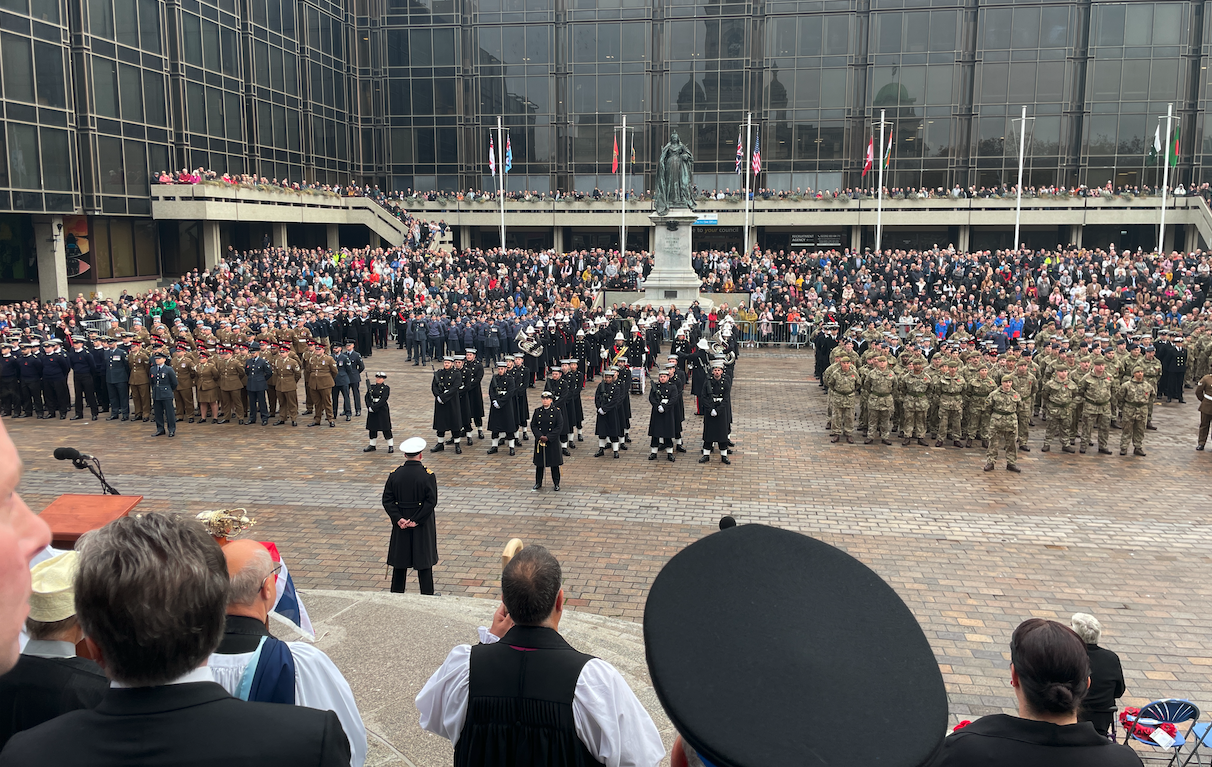Earlier this summer I had the privilege to move the Second Reading of the Veterans Advisory and Pensions Committees Bill. The bill was originally introduced by my honourable friend Robin Millar MP in House of Commons in March, and I was pleased it enjoyed cross party support.
The historic importance of the VAPCs dates back to 1921, when they were first established as war pensions committees to support veterans and their families. Over 100 years later, the 12 committees throughout the UK, staffed by volunteers, continue to provide invaluable support to our Armed Forces community. From my own experience as a previous MoD Minister, and during my military service, I have been aware of the excellent work that is undertaken by the VAPCs in support of our veterans and their families. Their statutory role is currently solely focused on engaging with the recipients of benefits related to the Armed Forces Compensation Scheme and War Pensions Scheme.
However, in response to the changing needs of the veteran community, and in the spirit of this Government’s commitment to the Armed Forces community as exemplified by the Armed Forces covenant and the creation of the Office for Veterans’ Affairs, they are currently working beyond their statutory remit to accommodate the changing veterans’ landscape. While they can conduct these non-statutory activities as private individuals, they are constrained in their ability to do them as a collective by their current statutory basis. The Bill seeks to put what they do in reality on a statutory footing.
I turn to why the Bill is needed. It will do three things. First, it will modernise the VAPCs and move the statutory framework of the committees into the Armed Forces Act 2006, a move which reflects that the VAPCs are MoD-sponsored advisory non-departmental public bodies—in other words, arm’s-length bodies—and more properly sit within the Armed Forces Act. Historically, their main functions related to the War Pensions Scheme and, as I have said, were established in the War Pensions Act 1921. Over time, their function has extended to the Armed Forces Compensation Scheme. They currently assist, raise awareness and act as advocates for veterans and their families, as well as acting as an independent body providing recommendations to Ministers.
Secondly, the Bill widens the scope of the role and responsibilities of the VAPCs. Currently, their statutory functions relate to recipients of war pensions and the Armed Forces compensation schemes. This will be extended to include awareness raising of services and initiatives, such as the MoD’s Veterans Welfare Service and the Armed Forces covenant, as well as extending the cohort of veterans with whom the VAPCs can engage to all veterans and their families. Expanding the role of the VAPCs would reflect the broader range of support now available to veterans and their families. It will enable the VAPCs to carry out additional functions in relation to veterans’ issues and bring their statutory functions in line with how they have operated in practice over time.
The enabling power seeks to allow the Secretary of State to make regulations in several areas—for example: establishing committees for specified areas; provisions for memberships of committees; the appointment and removal of members and the period of their membership; committees’ functions relating to former members of the Armed Forces and family members; services provided by the Ministry of Defence to former members of the Armed Forces or former family members of members of the Armed Forces. Crucially, it includes areas covered now by the Armed Forces covenant which relate to former members, including war pensioners and war pensions. It is similar to the existing powers under the Social Security Act 1989, except that the new powers allow for a broader range of statutory functions to be given to the VAPCs.
Thirdly, the Bill allows the Secretary of State greater flexibility to align the functions of the committees over time to respond to the changing needs of veterans—changes we have witnessed over the last 10 years. This flexibility builds on the call for responsiveness to issues highlighted by the VAPCs on behalf of their volunteers, as well as veterans and their families, allowing for the statutory functions of the committees to be amended over time so that they can best serve the needs of veterans and their families without requiring amendment to primary legislation that would inevitably take more time to achieve. It also aligns with the overall vision of the Office for Veterans’ Affairs and the MoD to make the United Kingdom the best place in the world to be a veteran. I am proud that this Bill will help to realise that vision.
As I have previously mentioned, the VAPCs are a non-departmental public body and subject to Cabinet Office reporting requirements that reviews are to take place every five years. Earlier this year, an independent reviewer looked at the function, form, efficacy and governance of the VAPCs. The review concluded and reported to Ministers in March 2023. The recommendations will be considered by Ministers alongside the wider independent review of HMG welfare services for veterans, which is currently under way. This gives us the opportunity to ensure that the enabling power supports the full spectrum of policy and operational delivery of veterans’ services.
I believe that the Bill will make a tangible difference to veterans and their families, and act as an important bridge between the veteran community and the Government.
Veterans Advisory and Pensions Committees Bill will help improve the lives of our amazing veterans, argues Lord Lancaster of Kimbolton

Lord Lancaster of Kimbolton
Major General John Mark Lancaster, Baron Lancaster of Kimbolton, is a Conservative Member of the House of Lords and a British Army reserve officer.

